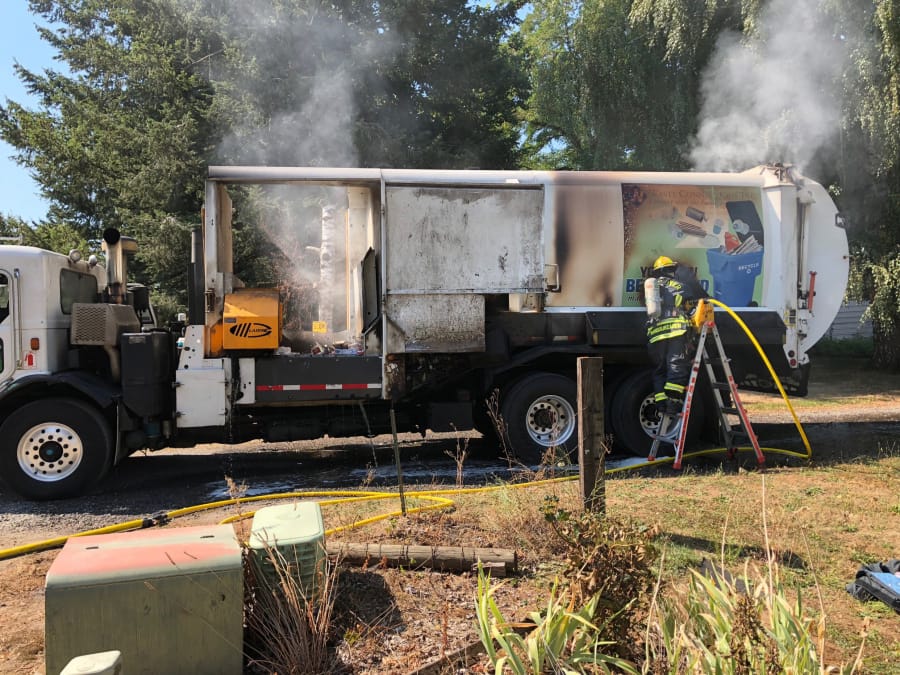On Nov. 15, a Waste Connections recycling truck was making its rounds in the Washougal area when its contents caught on fire.
To extinguish the fire, the truck dumped its load of cardboard, newsprint, scrap paper, aluminium and tin cans, and plastic jugs and containers onto the street.
Derek Ranta, district manager for Waste Connections of Washington, said it took four hours to clean up the mess.
The suspected cause was an improperly disposed battery that ignited paper when it was compressed with recyclables in the truck.
Lithium-ion batteries, the rechargeable power source for cellphones, laptop computers, tablets and other popular electronics, store much more energy than their alkaline cousins used in flashlights and other devices.
Ranta said fires sparked by batteries are routine, both here in Clark County and across the nation.
“It’s a common industry problem,” he said.
Waste Connections has not had a recycling truck destroyed because of a battery-caused fire, Ranta said.
In September 2018, one of the company’s trucks sustained several thousand dollars of damage during a fire in the Orchards area, he said. The fire melted the wiring used to open the back of the truck, which forced firefighters to cut into the truck’s sides to extinguish the fire.
Waste Connections concluded that most of these fires were sparked by discarded batteries.
“We can’t tell every time, but we usually make the assumption that it’s a battery,” Ranta said.
Batteries also can cause fires at transfer stations and materials recovery facilities.
The California Product Stewardship Council conducted a March 2018 survey and determined that 56 percent of the fires at California waste facilities during the previous two years were caused by batteries. In March 2018, a lithium battery caused a five-alarm fire at a Queens recycling plant in New York City.
So what should Clark County residents do?
“The biggest thing is to make sure they are not putting them in the (recycling) cart,” Ranta said.
Used batteries, not including vehicle or acid batteries, should be placed in sealed clear plastic bags and left on top of blue recycling carts for curbside pickup.
The National Fire Prevention Association advises placing tape on 9-volt batteries, commonly used in smoke detectors, since the positive and negative posts are so close together that a paperclip or other metal object touching both posts could generate enough heat to start a fire.
Clark County’s Recycling A-Z Directory recommends placing tape on both ends of all used household batteries.
“Even a dead battery has some charge left,” Marissa Armstrong, a communications specialist for Clark County Public Health, wrote in an email. “Taping the ends helps to prevent the discharge of electricity, which can start fires.”
Cellphones powered by lithium-ion batteries can be dropped off for reuse or recycling at several locations, including Best Buy and Office Depot. Specific locations are available in the Recycling A-Z Directory.




